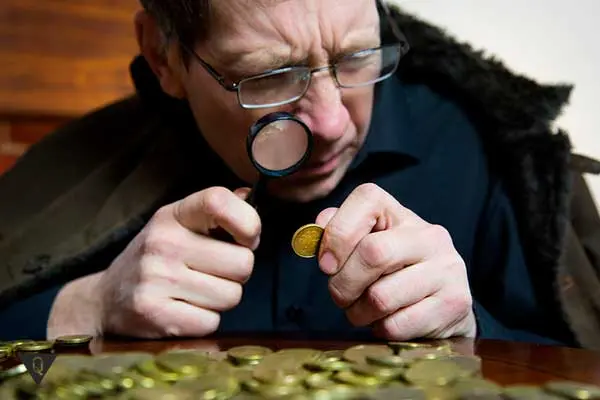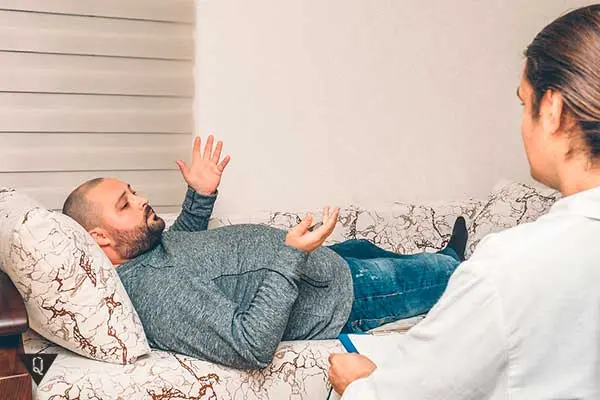Contents
Hello dear reader! We are glad to welcome you to this blog. Today I will tell you what Diogenes syndrome is. Based on the knowledge gained from the article, you will be able to analyze your behavior and the behavior of your friends. Perhaps someone close to you, or even yourself, already has signs of this syndrome.
What it is?
Diogenes syndrome or pathological hoarding is a type of mental disorder. People suffering from this ailment have an irresistible craving to collect objects that are most often used in everyday life. When a person has a constant desire to save household items, it becomes difficult for him to throw away the most basic things, whether it be a plastic bag or a tin can.
I would like to note that the ancient Greek philosopher, whose name the syndrome is named, Diogenes of Synod, was famous for his asceticism and unpretentiousness in everyday life. For this reason, the name of this disorder is slightly inaccurate. Increasingly, such a deviation is called Plushkin’s disease or the syndrome of senile squalor.
Causes of the disease

Scientists have been studying the causes of Diogenes syndrome for a long time. They say that the desire to collect is inherent in the human brain. Think about it, because each of us collected some items in childhood. How proud we were then if we managed to get a rare specimen in our collection!
However, after some time, such a hobby can either disappear for good, or develop into an obsessive desire that can turn into a real illness.
Among the reasons that can cause the development of pathological hoarding, experts call the following:
- advanced encephalitis or other diseases that affect the brain;
- strong stress;
- consequences of a head injury;
- lack of attention of relatives;
- loneliness;
- heavy loss;
- surgical interventions in the head area;
- alcoholism.
According to scientists, the elderly are at risk. In addition, thrifty and reserved personalities, misers and collectors are prone to disease. A separate group includes those who were in difficult economic conditions in childhood and adolescence.
Symptoms

The main symptoms by which Diogenes syndrome manifests itself:
- isolation from the outside world. For a long time, the patient may not leave the house. He believes that communication with other people is meaningless.
- Lack of desire to maintain order and cleanliness. This applies to both the premises where a person lives and personal hygiene. Because of this, such people suffer from other diseases, but do not go to the doctors.
- Hostile reaction to the desire of others to help. The patient shows anger, and sometimes aggression, when others pay attention to oddities in his behavior.
- No sense of shame. Outwardly, such people look like homeless people. They allow themselves to relieve themselves wherever they want. They do whatever comes to mind. This behavior attracts the guardians of law and order in the village.
- Greed in the financial sector. Such people see value and utility in every item in their so-called collection. They do not need money, but carefully accumulate their savings.
- The presence of accumulated rubbish in the dwelling. It may even be garbage brought from the street, in which the patient shows a special interest.
- Excessive attachment to «collection» items. The patient is irritated when others want to take his things or assure that they are not needed and should be disposed of.
Therapies
Usually a person who suffers from Plushkin’s syndrome is unaware of his disease. For him, this is a natural state, so he sees no reason to go to the doctors. Only those around you are able to notice the presence of the disease. In this case, they refer the patient to specialists.
This disease has no specific treatment regimen. However, there are 2 methods that can be used:
- psychotherapeutic (in particular cognitive-behavioral therapy);
- medical.
Some sources claim that people suffering from Diogenes syndrome are required to provide comprehensive psychological and medical assistance. That is, in order for the doctor to be able to see the whole picture, one should undergo a complete examination, pass general clinical tests and undergo an examination of internal organs.
Since Diogenes syndrome can occur due to brain damage, computed tomography is used to determine the extent of damage.
Help from family and friends
To date, there is no medicine that can cure Plushkin’s syndrome. Relatives and close people provide significant assistance in such a situation.
In order for the patient to embark on the path of recovery, he must be convinced that he should not drag home all the garbage from the neighborhood. You also need to help him focus on a particular subject or topic and start creating a collection with meaning. It is important that this is a useful direction, and items do not litter the house.
It is necessary to assure the patient that house cleaning is a necessary procedure. He should be helped to put things in order. It is required to explain that when guests come to him, they will have nowhere to sit, and also that it is very unpleasant to be in a house where everything is a mess.
Remind the patient to take care of their own hygiene. Insist that both the house and the body should be in order. After all, it is much more pleasant to communicate with a clean and tidy person. This will make you want to visit more often.
Thus, relatives and friends provide psychological assistance to the patient, support and motivate him.
Lessons with a specialist

But if a person is lonely, he is referred to a specialist. Sessions are held in the form of a friendly conversation. At meetings, the patient gradually realizes what his problem is and what threats it poses if he continues to lead the same lifestyle.
How to deal with the disease, how to recover and many other issues are discussed during therapy sessions. It is important to know that such treatment can take a very long time.
Medical therapy and hospital
If the situation is running, in this case, doctors resort to medical methods. The following categories of drugs are prescribed:
- antidepressants;
- sedatives;
- neuroleptics.
Hospitalization in a psychiatric hospital is also possible. If the environment manages to prove that a person is not mentally healthy, then such a person is recognized as incapacitated. Then it is allowed to hospitalize the patient without his consent.
Recommendations and prevention
To avoid such diseases in old age, take care of yourself in youth.
- Exercise regularly and take care of your health. Here you will find many articles on the subject.
- Train your brain. To do this, you need a little, devote only 10 minutes a day to activities with your brain. Wiki perfect for this.
Conclusion
In addition to this article, I recommend reading about senile psychosis.
Thank you for visiting my site. I sincerely hope that the article aroused genuine interest. Subscribe to the blog and also show it to your friends. Here they can find a lot of informative information.
All the best!









